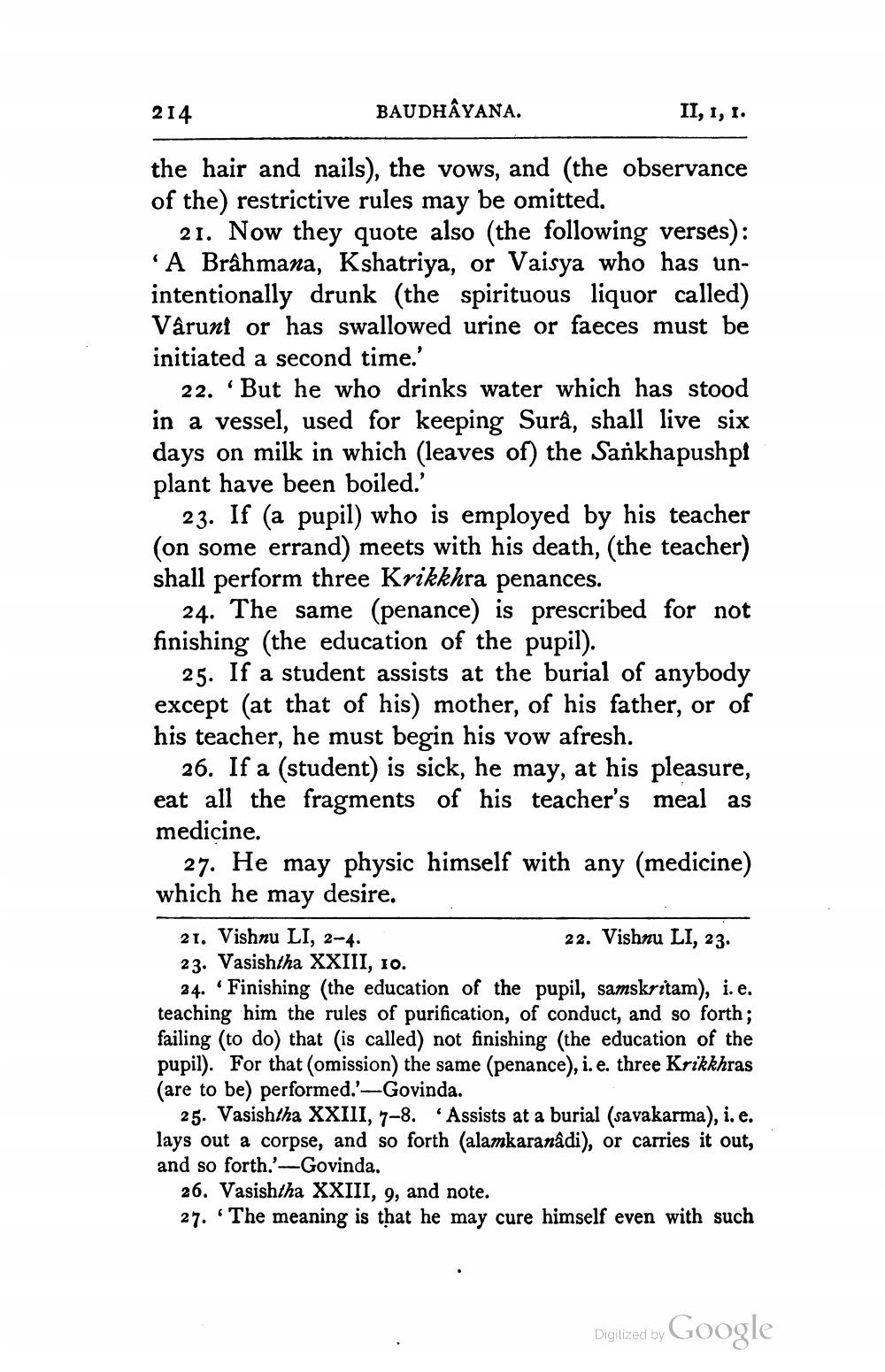________________
214
BAUDHAYANA.
II, 1, 1.
the hair and nails), the vows, and (the observance of the) restrictive rules may be omitted.
21. Now they quote also (the following verses): A Brâhmana, Kshatriya, or Vaisya who has unintentionally drunk (the spirituous liquor called) Vârunt or has swallowed urine or faeces must be initiated a second time.'
22. “But he who drinks water which has stood in a vessel, used for keeping Surâ, shall live six days on milk in which (leaves of) the Sankhapushpf plant have been boiled.'
23. If (a pupil) who is employed by his teacher (on some errand) meets with his death, (the teacher) shall perform three Krikkhra penances.
24. The same (penance) is prescribed for not finishing (the education of the pupil).
25. If a student assists at the burial of anybody except (at that of his mother, of his father, or of his teacher, he must begin his vow afresh.
26. If a (student) is sick, he may, at his pleasure, eat all the fragments of his teacher's meal as medicine.
27. He may physic himself with any (medicine) which he may desire. 21. Vishnu LI, 2-4.
22. Vishnu LI, 23. 23. Vasishtha XXIII, 10. 24. Finishing (the education of the pupil, samskritam), i.e. teaching him the rules of purification, of conduct, and so forth; failing to do) that is called) not finishing the education of the pupil). For that (omission) the same (penance), i.e. three Krikkhras (are to be) performed.'-Govinda.
25. Vasishtha XXIII, 7-8. Assists at a burial (savakarma), i. e. lays out a corpse, and so forth (alamkaranadi), or carries it out, and so forth.'-Govinda.
26. Vasishtha XXIII, 9, and note. 27. The meaning is that he may cure himself even with such
Digitized by Google




